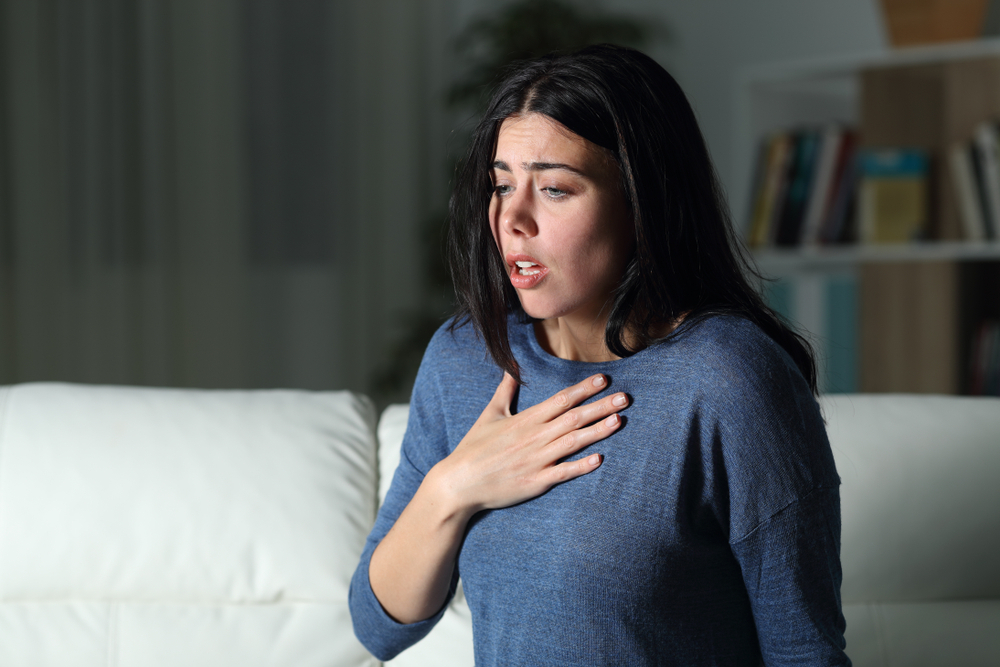We all know how frustrating and upsetting it is to be fired, financial problems, health problems, or losing a loved one. It’s natural to feel sad, helpless, lonely, and anxious at times like these. But if you feel anxious enough to affect your daily life or for no apparent reason, you may have an anxiety disorder.
As with many physical illnesses, there are some physical symptoms in anxiety that should not be ignored. Nervous systems of people with anxiety become very sensitive to external stimuli. For this reason, the body of people with anxiety may react in an uncomfortable and excessive way in situations where the body would not normally overreact.
Anxiety Causes You to Have Difficulty Breathing
When you are faced with a situation that triggers your anxiety, your body thinks that it is preparing for a life-threatening action and activates the fight/flight mechanism. At this stage, the stress hormone secreted by the body compresses the blood vessels responsible for providing clean blood circulation, and your breathing inevitably becomes more frequent, even if you do not get up, in order to take action against the danger that awaits you. Shortness of breath can also be a sign of a panic attack.
It Can Cause Palpitations
When we are faced with a frightening situation, the secretion of adrenaline and norepinephrine hormones in our body; it brings with it many physical symptoms such as heart palpitations, trembling in the hands. It is this biological reaction that causes people with anxiety to feel their heartbeat quicken in stressful situations.
Anxiety May Lead to Abdominal Pain and Stomach Cramps
Changes in the autonomic nervous system with anxiety can cause digestive problems. Meanwhile, the hormone adrenaline secreted causes the sugar in our body to be converted into glucose, thereby disrupting the natural working flow of the digestive system. By affecting the speed of circulation of nutrients in the body, it causes abdominal pain, gas and unusual bowel movements. For this reason, it is quite common for people with chronic anxiety disorder to experience problems with the digestive system in their daily lives.
Causes Pain in the Jaw and Neck Muscles
Anxiety can cause the muscles in your body to tense and contract. Since clenching is a common side effect in people with anxiety, the area that is particularly affected by this situation is the jaw muscles. Since the contraction of the jaw muscles and facial pain are not well-known effects of anxiety, such a situation may cause anxiety sufferers to worry even more and to question whether there is a physical problem in them. In such a case, it would be beneficial to consult a specialist psychologist and get psychological support without wasting time.
Excessive Sweating May Be One of the Physical Symptoms of Anxiety
All these hormonal changes in the nervous systems of anxiety patients cause an increase in body temperature. With the acceleration of the heartbeat and the contribution of the fight/flight mechanism, you may face an excessive sweating situation for which you do not know the reason. People who have this problem, especially in social environments, feel even more anxious and nervous, and the situation can become inextricable. In such cases, reassuring yourself that you are not in real danger will help reduce anxiety symptoms such as excessive sweating.
May Cause Severe Headaches
Anxiety can bring along severe headaches and migraine problems. These headaches can make it impossible to perform even your daily activities after a while. Experts state that severe headaches and migraines are also seen in the majority of people, especially those with generalized anxiety disorder.
It Makes You Feel Tired
Living with anxiety is an extremely tiring job that consumes all our energy. Because the body and mind are constantly alert due to the changes caused by anxiety, it is often not possible to get a healthy night’s sleep and rest your mind and body, and you will feel exhausted. It is inevitable that this constant state of fatigue will cause all the muscles in your body to ache, your eyes to burn, and your headaches to increase. The effects of anxiety can make even mundane tasks, such as going to work or keeping track of your daily chores, unmanageable.
The physical symptoms of anxiety may differ from person to person, but if these symptoms sound familiar to you, it would be beneficial to talk to your psychologist immediately.


Great analysis of how anxiety affects health! The practical tips for managing anxiety symptoms provide hope and guidance for those seeking to improve their overall well-being.